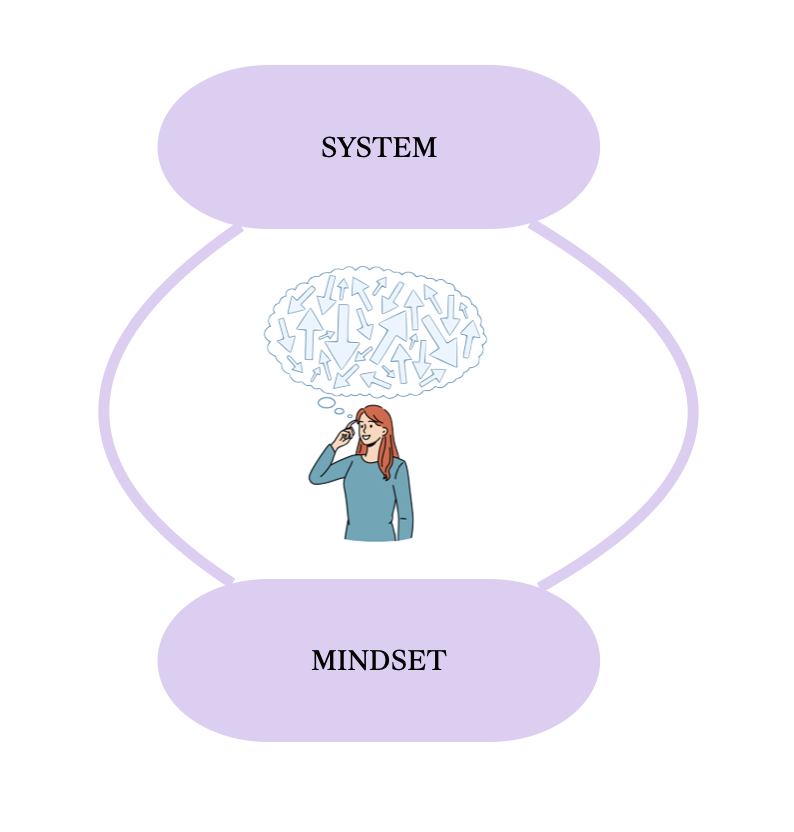One of the key debates in change circles is ‘system vs people’. Does it make sense to work on mindset to help people change their behaviour and mindset or is it pointless?
I tend to see two main arguments from system-based change agents:
1. It is very difficult for people to change their mindset and behaviour willingly, if not impossible
2. If we do manage to help people change but the systems around them do not, then we end up alienating the very people we helped to change because they can not implement their new behaviours
System-based change agents further argue that what we really must do is change the system, also known as the environment or the context. Change the system, and people will automatically adapt and change their behaviour.
A negative (in my opinion) example of this is Elon Musk setting up bedrooms in the office. It is clear that more and more people will end up sleeping in the office, something they would probably not have done before.
A positive example is a leadership team changing the way it evaluates and rewards success in the organisation to encourage collaboration rather than individual achievement.
Changing the system/environment/context and one or more of the processes they contain undoubtedly works. People will adapt. Initially, some will be frustrated and leave. Some will be frustrated and stay, despite lacking intrinsic motivation. And some will like it. Eventually, with enough time, the new environment will become the culture that new arrivals will experience as ‘this is how it’s done around here’.
On the other side of the coin, we find the people-based change agents.
These change agents have a lot of faith in human beings, so much that they believe they can be at the centre of any change and transformation. If we work with people, they can become the bottom-up instrument of change. If we change their mindset, then they will update the environment and systems to reflect the new values. ‘Power to the people’ might as well be the motto of these change agents. And with enough trainings and workshops, they can impact mindset and behaviour and create a movement that ripples through the rest of the organisation.
So, which of these approaches should you follow?
The answer is two-fold:
– ‘It depends’
– ‘A little bit of both’
‘It depends’ because there are all kinds of change projects and expected results. Some of them are organisation-wide, some of them might just be affecting one department or one team (at least initially). In some cases, you have full leadership support, and in others, you do not. The type of change also plays a role. Reducing burn-out and turnover is different than rolling a new software. So it depends. Sometimes, it makes sense to start with the system and sometimes it makes sense to start with the people.
‘A little bit of both’ because I believe the best approach is one that uses both in parallel, in an iterative process, each building on the findings of the other, for the purpose of achieving a clearly defined change goal. A leader might benefit from a mindset training or workshop that helps her to re-assess the system in a way that was not visible before the training. Another might benefit from defining first the required beliefs and behaviours required to achieve the change goal and then to determine which system-based change is needed to elicit these behaviours. Or one may simply be so clear already that he knows which part of the system to tweak first to generate the expected response.
In summary, both sides have something valuable to offer. And both are key to a successful transformation in organisations. We can use a simple iterative model where both sides feed off each other. It is a reminder that next time to start with your transformation, you do not have to necessarily pick a side.





